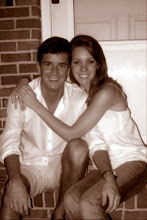Oscar Wilde was more than an interesting fellow. To say he was a man before his time would be an understatement. An Irishman, Wilde can be considered one of the most fascinating individuals of the 19th century. He was a poet, a playwright, and a philosopher. He had a meteoric rise and a tragic nadir. Oxford educated, he became a leading proponent of the aesthetes movement, which can be summed up by what Walter Pater said: "Poetic passion, the desire of beauty, love of art for art's sake." (p. 828) Wilde gained his wealth from the plays he wrote, and was very popular in America. He had a wife and two kids (the two kids are the characters in "The Decay of Dying"). Oscar Wilde later became involved in an affair with an aristocratic man's son. The father of the son became outraged when he learned this, and sent Wilde a letter calling him a sodomite. He later started spreading this among the people of England. Wilde then filed suit against the man for libel, but the claim came out to be true that Wilde was involved in this behavior. This landed him in jail for two years. Once he was released from prison, he was disowned by his family, who while he was in prison, changed their last name. This led Wilde to live the rest of his life as a bum. He later died in a Paris hotel, poor and dejected. Always the comedian, Wilde said it best when he said, "I am dying beyond my means." (p. 830)
In his piece, "The Decay of Lying", he set up a dialogue between two individuals using the names of his two sons, Cyril and Vivian. It's important to keep in mind that Wilde plays Devil's advocate in almost all of his works. In this one, he takes on Plato in his assertion that art is a lie. In my opinion, Wilde hits an important issue head on and I couldn't agree more. He discusses two different kind of lying. He tells us to always think outside of facts. If we argue with one another based on facts, we wouldn't progress. Lying by means of exaggeration is acceptable, and encouraged, by Wilde, as this helps us think outside the box. Lying by means of distorting facts is despicable, according to Wilde. He says it best when he says,
"Many a young man starts in life with a natural gift for exaggeration which, if nurtured in congenial and sympathetic surroundings, or by the imitation of the best models, might grow into something really great and wonderful. But as a rule, he comes to nothing. He either falls into careless habits of accuracy...or takes to frequenting the society of the aged and well-informed. Both things are equally fatal to his imagination, as indeed they would be fatal to the imagination of anybody, and in the short time he develops a morbid and unhealthy faculty of truth-telling, begins to verify all statements made in his presence, has no hesitation in contradicting people who are much younger than himself, and often ends by writing novels which are so like life that no one can possible believe in their probability." (p. 834)
Wilde was very interesting to say the least.
Monday, June 23, 2008
Subscribe to:
Post Comments (Atom)

2 comments:
Daniel,
Although it takes you a while to get started (your initial paragraph seems more like padding than the establishing of context for your discussion), you eventually get around to a good focus on Wilde's "Decay of Lying." I like very much the quotation you provide from that dialog, although you do not discuss or analyze it at all.
I loved "The Decay of Lying;" it's one of my favorite Wilde pieces! I wish you has spent a little more time discussing the quotation, "Art for Art's sake." It bothers me how generally this axiom (perhaps?) resonates in his work. It's an almost unexplainable idea that still exists as an undercurrent of much of his work. I love the commentary enveloped in the "Decay of.." dialogue; it's almost a plea by Wilde to "get creative" with the truth.
Post a Comment